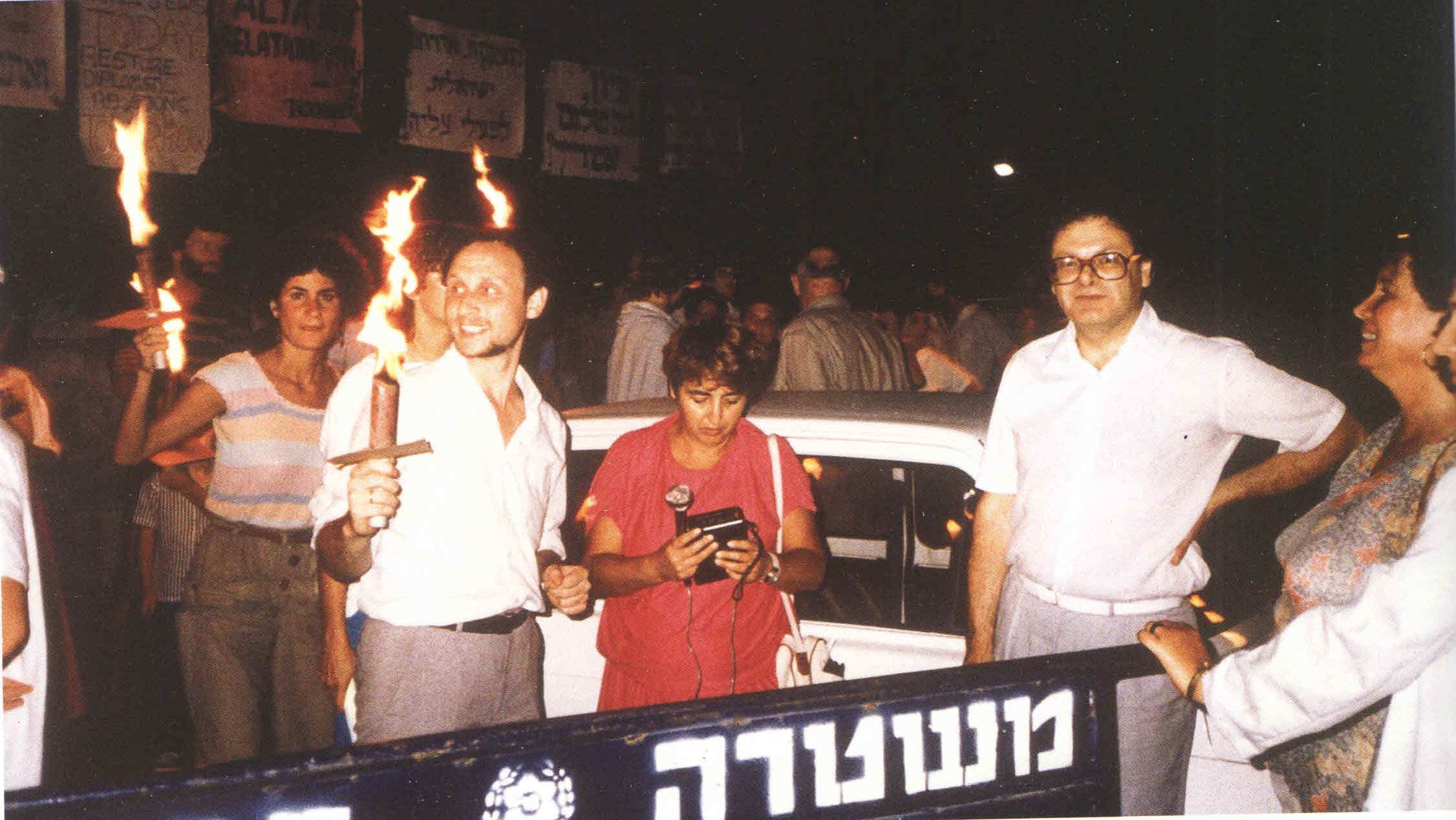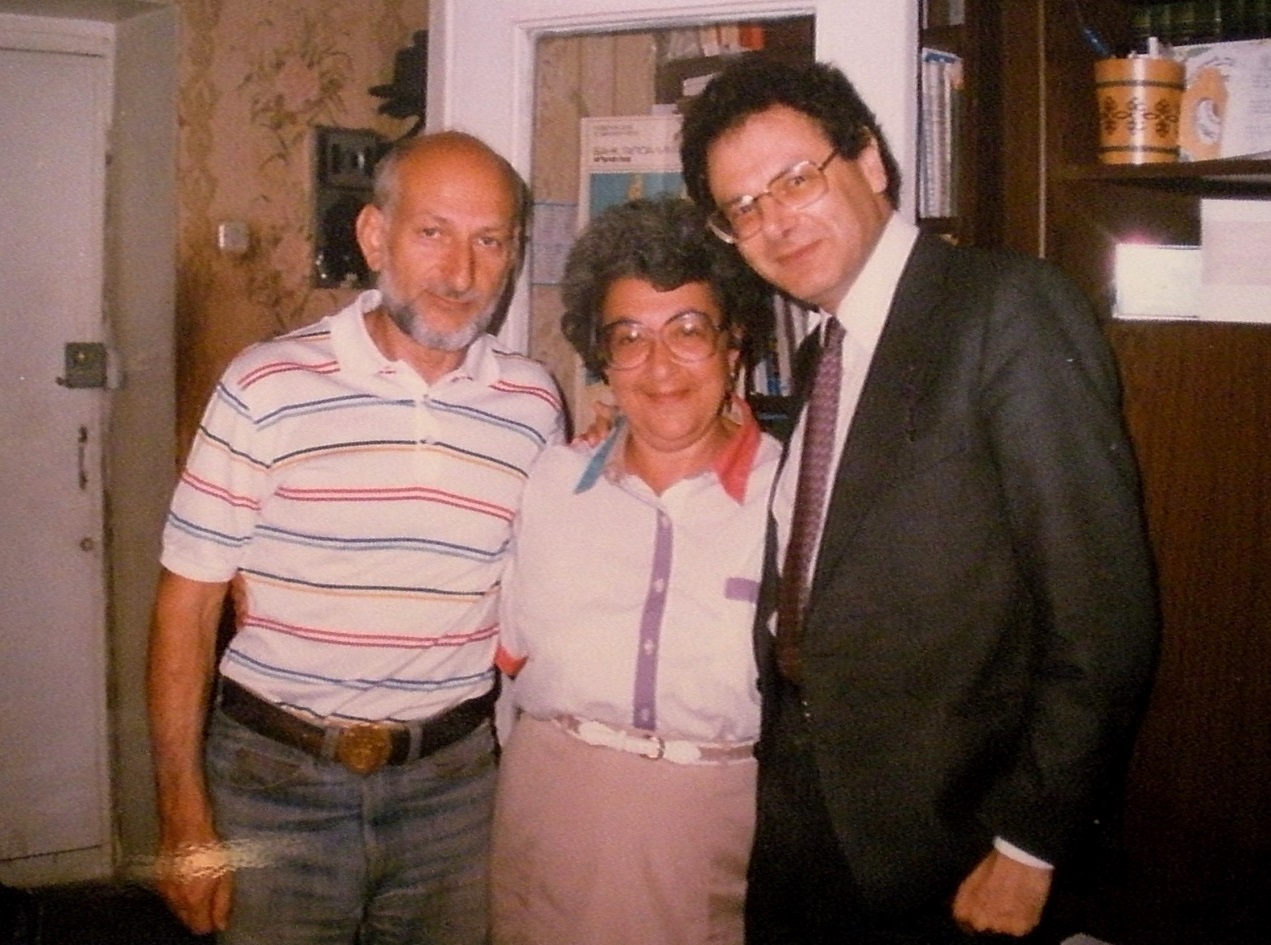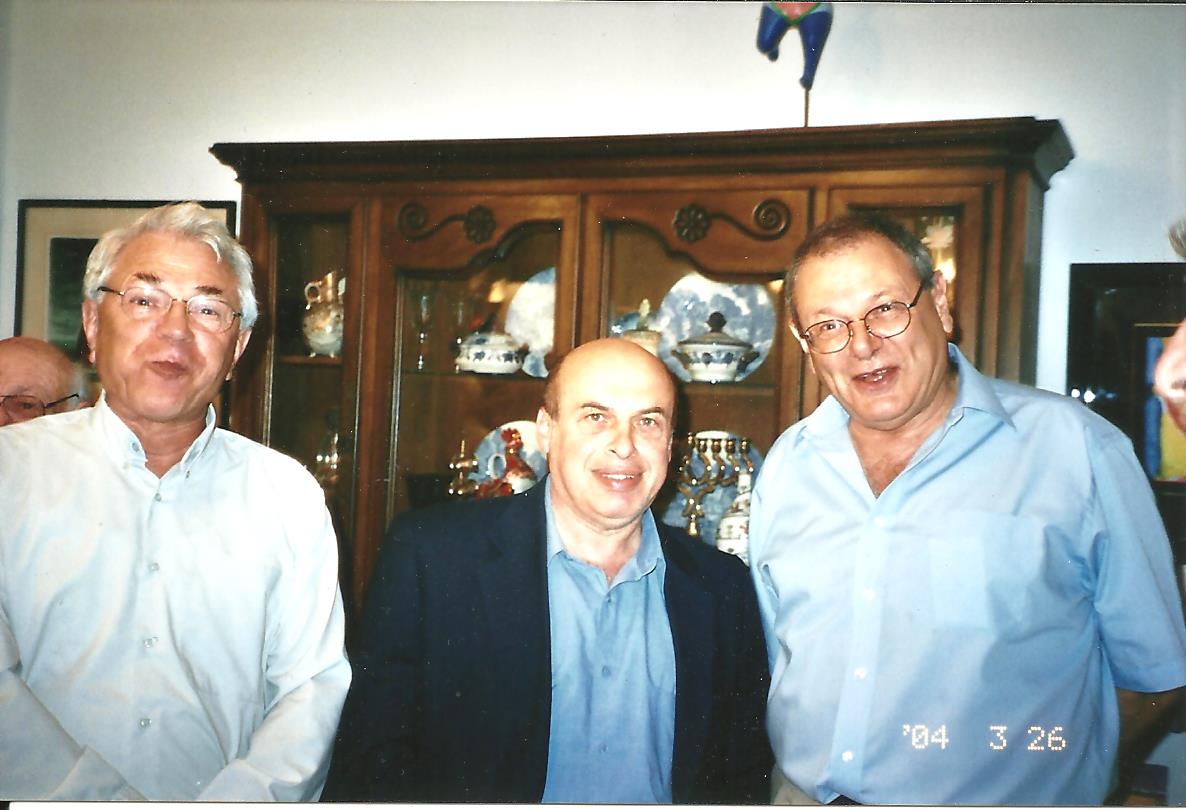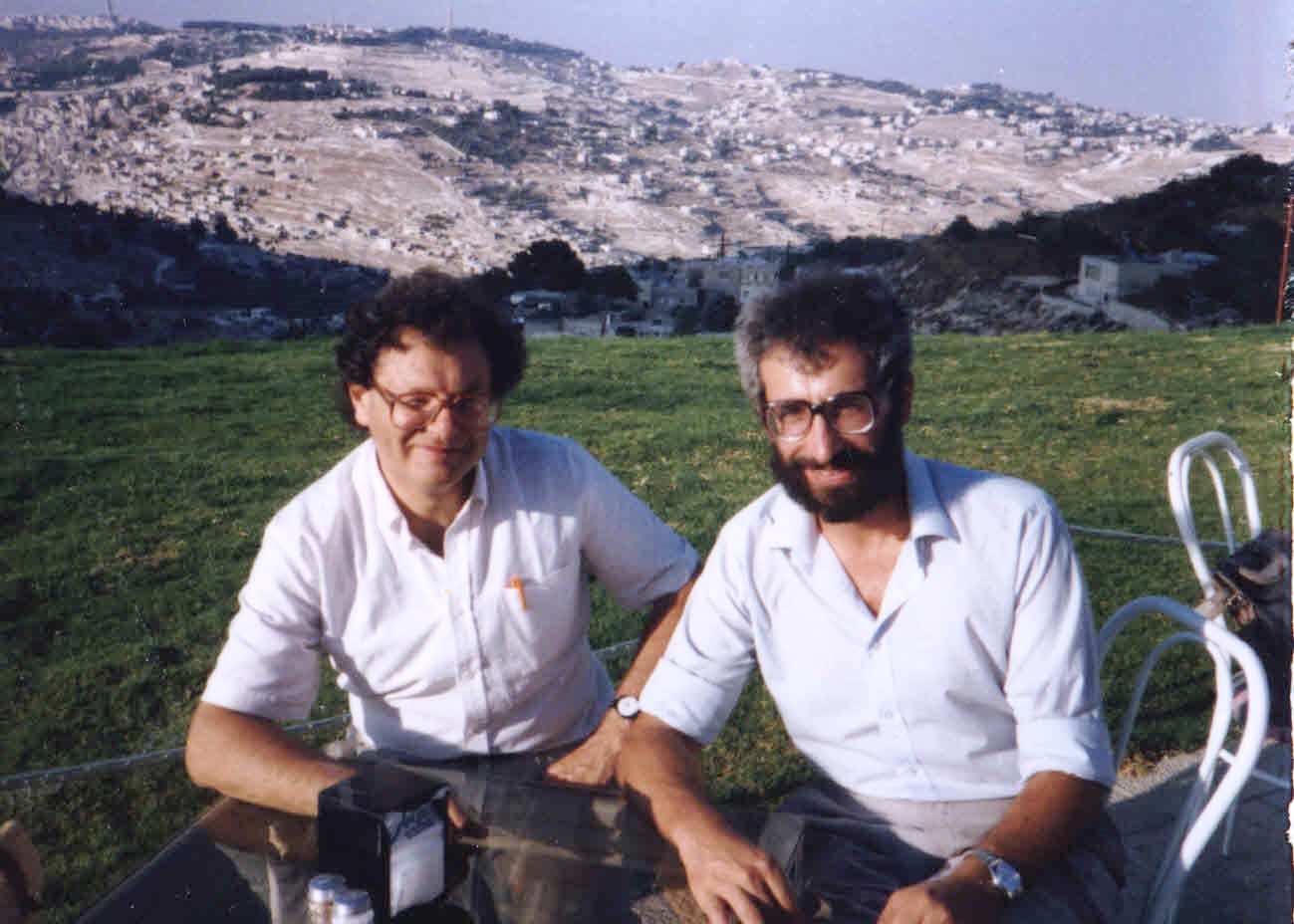In memory of Martin Gilbert
|
A Jewish Knight.
Sir Martin Gilbert and Soviet 'Refuseniks'
On February 3, an outstanding British historian, an author of over eighty (!) books, Sir Martin Gilbert passed away at the age of 78 in London. Martin Gilbert was born into a family of a jeweler. All four of his grandparents had been born in Tsarist Russia. An Oxford graduator, Gilbert became famous as an official biographer of Sir Winston Churchill. His publications of Churchill (the biography and related documents) include 24 volumes. He also was an author of a number of historical atlases, books on the history of the First and Second World Wars, Jewish history, the Holocaust and other topics of Modern history. For his writings and services to four British prime-ministers, from Margaret Thatcher to Tony Blair he was made a commander of the Order of the British Empire and awarded a knighthood. However, his great services to the Soviet Jewry were not properly recognized yet.

Demonstration on behalf of Soviet Jews, Jerusalem, 1986. From the left: Yuri Shtern, Ester Karmi, Sir Martin Gilbert, Enid Wurtman.
|
|
For many Russian Jews he is and will remain first and foremost a champion for the right to emigrate from the Soviet Union and to join their people of Israel, in which they were often refused. Martin joined the struggle in the winter 1983 when he traveled to Moscow and Leningrad, where he met and interviewed leaders and activists of the Soviet Jewish movement. Though on his departure at Moscow airport the authorities confiscated a part of his notes, on his return, Martin wrote a moving report of his journey which was published under the title The Jews of Hope. The Plight of Soviet Jewry Today. The book had a tremendous effect: throughout the free world many people joined the movement for Soviet Jewry after reading it. By granting international publicity to his heroes, Martin did a lot to protect them from further persecutions.
But this was not all. Every person he met in Russia became a pen-friend of Martin Gilbert. Overloaded by thousand and one other things he was working on, Martin kept in touch with letters and postcards, often sent registered with returned receipts to confirm they had not been intercepted by the KGB. Out of respect to his friends he wrote letters in his own hand. He also never calculated whose turn it was to write. He knew the value of his messages and his encouragements, and he sent them on every opportunity, even while waiting for a plane or riding on a train. He always took care to add beautiful stamps and to send a postcard from every new place he visited.

Aba and Ida Taratuta with Martin Gilbert in their apartment in Leningrad, 1983.
|
|
Martin tried to respond to every Refusenik's request, to protect them from trouble, inspire them with hope for freedom, a rare commodity in the Soviet Union. Towards this end he turned to politicians, including the then Prime-Minister Margaret Thatcher, public organizations, and prominent individuals.
In 1983, Gilbert dedicated the sixth volume of his Churchill biography to two leading Jewish activists and long-term activists Yuly Kosharovsky and Aba Taratuta. In his atlases he included the names of prisoners of Zion and long-term Refuseniks – all part of his effort to publicize their plight. He wrote articles on the Soviet Jewry struggle in The Jerusalem Post, which were syndicated world-wide. He tirelessly fought for those who were imprisoned: Nathan Shcharansky, Iosif Begun, Evgeny Lein, Roald Zelichenok, Vladimir Lifshits, Alexander Kholmiansky, Yuly Edelshtein and others. In 1986, he published a book Shcharansky. Hero of Our Time. Martin worked tireless, with the efficiency of an entire organization or institution.

Yuli Kosharovsky, Natan Shcharansky, and Martin Gilbert. Apartment of Enid and Stewart Wurtman, Jerusalem, 2004.
|
|
My meeting with Martin was fateful. With his encouragement and intensive help, I wrote my first book "The Jews of St. Petersburg: Excursions through a Noble Past" while still being held behind the Iron Curtain. Foreign visitors microfilmed and smuggled chapters of the manuscript out of Russia and sent them to Martin, who put the pieces together, had them translated into English and then published in Philadelphia. He also edited the book and wrote an introduction. Its publication defined my destiny to earn a PhD and become a historian.

Martin Gilbert and Michael Beizer. Jerusalem, Taielet, 1987.
|
|
We, the former Soviet Refuseniks, were very pleased to hear when Martin Gilbert was honored with a knighthood. For us he was a Jewish knight, always ready to join a battle for his people. On getting older Martin more often wrote on Jewish and Israeli history. He started to attend an Orthodox synagogue in London, so we were not surprised to learn that he bequeathed to be buried in Israel. There were no Israeli politicians or journalists at his funeral. There were no wreaths or flowers, only a bitterness of a loss of a friend and protector, Jewish knight Sir Melach (Martin) Gilbert.
Dr. Michael Beizer
Historian of Russian and Soviet Jewry
Hebrew University of Jerusalem
|